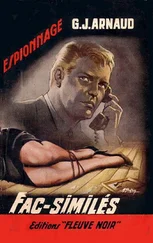George Fox - George Fox - An Autobiography
Здесь есть возможность читать онлайн «George Fox - George Fox - An Autobiography» — ознакомительный отрывок электронной книги совершенно бесплатно, а после прочтения отрывка купить полную версию. В некоторых случаях можно слушать аудио, скачать через торрент в формате fb2 и присутствует краткое содержание. Жанр: foreign_antique, foreign_prose, Биографии и Мемуары, на английском языке. Описание произведения, (предисловие) а так же отзывы посетителей доступны на портале библиотеки ЛибКат.
- Название:George Fox: An Autobiography
- Автор:
- Жанр:
- Год:неизвестен
- ISBN:нет данных
- Рейтинг книги:3 / 5. Голосов: 1
-
Избранное:Добавить в избранное
- Отзывы:
-
Ваша оценка:
- 60
- 1
- 2
- 3
- 4
- 5
George Fox: An Autobiography: краткое содержание, описание и аннотация
Предлагаем к чтению аннотацию, описание, краткое содержание или предисловие (зависит от того, что написал сам автор книги «George Fox: An Autobiography»). Если вы не нашли необходимую информацию о книге — напишите в комментариях, мы постараемся отыскать её.
George Fox: An Autobiography — читать онлайн ознакомительный отрывок
Ниже представлен текст книги, разбитый по страницам. Система сохранения места последней прочитанной страницы, позволяет с удобством читать онлайн бесплатно книгу «George Fox: An Autobiography», без необходимости каждый раз заново искать на чём Вы остановились. Поставьте закладку, и сможете в любой момент перейти на страницу, на которой закончили чтение.
Интервал:
Закладка:
"The three most influential Englishmen of the last three centuries were George Fox, John Wesley and John Henry Newman. Those who wish really to understand those three centuries must read, mark, learn, and inwardly digest Fox's Journal, Wesley's Journal, and Newman's Apologia. The entire future of England and the English Empire depends upon the answer to this question: Will Newman defeat Fox and Wesley, or will Fox and Wesley defeat Newman?"
Editorial in "The Methodist Times."2
"The Quaker religion which he (George Fox) founded is something which it is impossible to overpraise. In a day of shams, it was a religion of veracity rooted in spiritual inwardness, and a return to something more like the original gospel truth than men had ever known in England. So far as our Christian sects to-day are evolving into liberality, they are simply reverting in essence to the position which Fox and the early Quakers so long ago assumed. No one can pretend for a moment that in point of spiritual sagacity and capacity, Fox's mind was unsound. Every one who confronted him personally, from Oliver Cromwell down to county magistrates and jailers, seems to have acknowledged his superior power."
James's "Varieties of Religious Experience," page 6.3
At this epoch there were more than two hundred capital offenses.
4
"Dear friends and brethren that have gone into America and the islands thereaway, stir up the gift of God in you and improve your talents. Let your light shine among the Indians, the blacks and the whites, that ye may answer the truth in them and bring them to the standard and ensign that God hath set up, Jesus Christ . Grow in the faith and grace of Christ that ye be not like dwarfs , for a dwarf shall not come near to offer upon God's altar."
From an Epistle of George Fox written in 1690.5
"In 1658 there was not a Quaker living who did not believe Quakerism to be the one only true Church of the living God."
Hancock's "Peculium," page 8.6
From William Penn's "Preface to the Journal of George Fox."
7
Now called Fenny Drayton; a little hamlet about five miles from Nuneaton, in a flat, though beautiful farming country. The house in which George Fox was born has long since vanished, and the few cottages which cluster here about the crossing of two roads are of modern structure. An obelisk, with a long inscription, stands within a hundred yards or so of the site of the birthplace.
8
This martyred ancestor of Mary Lago was probably a member of the Glover family, of Mancetter, a few miles north of Drayton. (See article on Fox in Dict. of Nat. Biog., which refers to Riching's "Mancetter Martyrs," 1860.)
9
"Creatures" here and frequently means "created things."
10
"Priest" here means clergyman in the established Church, though the "priests" with whom he comes in contact in the early years of his ministry are Presbyterian. The word is usually employed for any minister who receives pay for preaching.
11
This brief connection with shoemaking has been effectively used by Carlyle in his famous characterization of George Fox. (See "Sartor Resartus," book iii., chapter 1: "An Incident in Modern History.") There is, however, no historical foundation for Carlyle's picture. Sewel denies that there was any connection between Fox's suit of leather and "his former leather-work." Croese says the shoemaker and cattle grazer lived in Nottingham.
12
"Professor" means here and everywhere throughout this book a nominal Christian. Our modern substitute for the expression would be "a church member."
13
Until 1752 the English year began in March, so that by the calendar then in use June was the fourth month. This method of reckoning time runs through the entire book, and may be mentioned here once for all.
14
"Tender" is one of George Fox's favorite words. It will come often. It means that the persons to whom it is applied are religiously inclined, serious, and earnest in their search for spiritual realities.
15
From his return home in 1644, George Fox dates the beginning of his religious society. (See Epistles , Vol. I., p. 10. Philadelphia edition, 1831.)
16
The Civil War was at its height.
17
It was a settled custom, in fact, a matter of conscience with Fox, to avoid the names of the days and of the months. He disliked them because they commemorated heathen divinities, and he always makes a point of using numeral adjectives instead of the names. It was not an original scruple with him, but a similar position was taken by some of the leading "Separatists" before the Commonwealth period. (See Barrow's "False Churches," p. 204.)
18
Richard Abell.
19
Of Atherstone.
20
It is difficult to find out where George Fox's money came from. He reports in the original MS. of the Journal, p. 17, a remark his relatives made about him when he left home: "When hee went from us hee had a greate deale of gould and sillver about him." He is always well supplied. He goes to inns, always has a good horse, wears clean linen and frequently gives to charity. In signed papers in the Spence collection he gives orders for the disposal of money invested "in ships and trade," as well as of a thousand acres of land in Pennsylvania which William Penn had assigned to him.
21
This expression "opened" has a mystical import, and will be of frequent occurrence. He means to say that it was directly revealed in his soul so that he assuredly knew it to be true. Often he uses the expression in reference to some truth which he might easily have discovered in the Scriptures or have learned from contemporary sources. But in this solemn way he announces that this truth has now at length come to be a living truth for him . It is no longer a mere statement of fact – it is a principle, the truth of which he sees .
22
That is, gave them Scripture references.
23
This was one of the many curious religious sects with which the England of the Commonwealth was overrun. (See Edwards's "Gangræna.")
24
"Friends" is here used for the first time in the Journal as the name of the new denomination. It is not possible to determine when the name was adopted or why it was chosen. When the Journal was written the term had already become fixed and Fox uses it without comment or explanation, referring it back to a period before it came into use as the name of the Society. At first the word "friends" was probably used in an untechnical sense for those who were friendly , and little by little it hardened into a name. At the very beginning they called themselves "Children of the Light."
25
In the northern part of Derbyshire.
26
These were "Ranters" who will appear again and often. They claimed to be perfect and above the possibility of sinning. Some even went to the wild extreme of claiming to be Christ, or God. They went on living for the most part much as they chose, and justified their acts on the ground that it was God who was acting in them. It is clearly apparent from this autobiography that such persons were very numerous at the time. It will be noticed that George Fox believes also in the possibility of freedom from sin, but perfection as he holds it means something quite other than this doctrine of the Ranters, as the Journal will show.
Читать дальшеИнтервал:
Закладка:
Похожие книги на «George Fox: An Autobiography»
Представляем Вашему вниманию похожие книги на «George Fox: An Autobiography» списком для выбора. Мы отобрали схожую по названию и смыслу литературу в надежде предоставить читателям больше вариантов отыскать новые, интересные, ещё непрочитанные произведения.
Обсуждение, отзывы о книге «George Fox: An Autobiography» и просто собственные мнения читателей. Оставьте ваши комментарии, напишите, что Вы думаете о произведении, его смысле или главных героях. Укажите что конкретно понравилось, а что нет, и почему Вы так считаете.












